Discover How to Keep Time
How to Keep Time

How to Keep Time
Author: The Atlantic
Subscribed: 22,596Played: 171,184Subscribe
Share
Copyright © 2023 by The Atlantic Monthly Group. All Rights Reserved. 313699
Description
On this season of How to Keep Time, co-hosts Becca Rashid and Ian Bogost explore our relationship with time and how to reclaim it. Why is it so important to be productive? Why can it feel like there’s never enough time in a day? Why are so many of us conditioned to believe that being more productive makes us better people?
Produced by Becca Rashid. Co-hosted by Becca Rashid and Ian Bogost. Editing by Jocelyn Frank. Fact-check by Ena Alvarado. Engineering by Rob Smerciak. The executive producer of Audio is Claudine Ebeid; the managing editor of Audio is Andrea Valdez.
Write to us at howtopodcast@theatlantic.com.
38 Episodes
Reverse
Welcome to How to Build a Happy Life! In this series, host Arthur Brooks digs into research and offers tools to help you live more joyfully. Join us for deep conversations with psychologists, experts, and friends of The Atlantic's Chief Happiness Correspondent. For more info, visit www.theatlantic.com/happy
Learn more about your ad choices. Visit megaphone.fm/adchoices
Only when we admit we have a problem can we begin to find solutions. On the first episode of How To Build a Happy Life, we explore the neuroscience of emotional management, practices that help us befriend our inner monologue, and challenges to getting in touch with our feelings. Our journey to happier living starts with the question: How do I feel right now?
This episode features Dan Harris, former ABC News anchor, meditation expert and founder of Ten Percent Happier.
---
This episode was produced by Rebecca Rashid and hosted by Arthur Brooks. Editing by A.C. Valdez, Katherine Wells, and Gillian White. Fact-check by Ena Alvarado. Sound design by Michael Raphael.
Listen to full length episodes on Youtube
Do you like what you hear? Read Arthur's columns on self-awareness, success addiction, and why failure is OK.
Be part of How To Build a Happy Life. Write to us at howtopodcast@theatlantic.com or leave us a voicemail at 925.967.2091.
Music by Trevor Kowalski ("Lion's Drift," "This Valley of Ours," "Una Noche De Luces"), Stationary Sign ("Loose in the Park"), and Spectacles Wallet and Watch ("Last Pieces").
---
Learn more about your ad choices. Visit megaphone.fm/adchoices
The irony in loneliness is that we all share in the experience of it. In this episode of How to Build a Happy Life, we sit down to discuss isolated living and Americans’ collective struggle to create a relationship-centric life. As we continue along our journey to happiness we ask: How can I build my life around people?
This episode features Dr. Vivek H. Murthy, the U.S. Surgeon General.
This episode was produced by Rebecca Rashid and hosted by Arthur Brooks. Editing by A.C. Valdez. Fact-check by Ena Alvarado. Sound design by Michael Raphael.
Be part of How to Build a Happy Life. Write to us at howtopodcast@theatlantic.com or leave us a voicemail at 925.967.2091.
Music by Trevor Kowalski (“Lion’s Drift,” “This Valley of Ours,” “Una Noche De Luces”), Stationary Sign (“Loose in the Park”), and Spectacles Wallet and Watch (“Last Pieces”).
Learn more about your ad choices. Visit megaphone.fm/adchoices
In the social-media age, we curate images of our lives on a screen—making it especially easy to translate images of perfection as the image of oneself. But the pressure to pretend we are perfect is exactly the thing holding us back from experiencing the happiness we seek—and limiting our ability to be our whole, authentic selves.
In this episode of How to Build a Happy Life, we’ll define what we mean by “authenticity” and explore the psychological underpinnings of our ego-driven identities. A conversation with the clinical psychologist and mindfulness expert Dr. Shefali helps us work through one of the most challenging questions of all: Who am I?
This episode was produced by Rebecca Rashid and is hosted by Arthur C. Brooks. Editing by A. C. Valdez. Fact-check by Ena Alvarado. Sound design by Michael Raphael.
Be part of How to Build a Happy Life. Write to us at howtopodcast@theatlantic.com or leave us a voicemail at 925.967.2091.
Music by Trevor Kowalski (“Lion’s Drift,” “This Valley of Ours,” “Una Noche De Luces”), Stationary Sign (“Loose in the Park”), and Spectacles Wallet and Watch (“Last Pieces”).
Click here to listen to every full-length episode in the series.
Try out this week’s tool-kit exercise, “The Chipping-Away Exercise,” and apply these lessons to your own life! Tag us on social media with #thechippingawayexercise, and listen to full-length episodes of How to Build a Happy Life at theatlantic.com/happy.
Learn more about your ad choices. Visit megaphone.fm/adchoices
If there’s one thing we might regret at the end of life, it’s that we missed out on moments that mattered—not because we weren’t physically there, but because our mind wandered off to some unknown place.
In this episode of How to Build a Happy Life, we explore why it’s uniquely challenging to “live in the moment,” how we limit our own curiosity by assuming we know best, and why the illusion of stability pulls us from living every day fully, and in the moment. A conversation with Harvard University professor of psychology Dr. Ellen Langer helps us think through a daily struggle: How do I stay present?
This episode was produced by Rebecca Rashid and is hosted by Arthur C. Brooks. Editing by A. C. Valdez. Fact-check by Ena Alvarado. Sound design by Michael Raphael.
Be part of How to Build a Happy Life. Write to us at howtopodcast@theatlantic.com or leave us a voicemail at 925.967.2091.
Music by Trevor Kowalski (“Lion’s Drift,” “This Valley of Ours,” “Una Noche De Luces”), Stationary Sign (“Loose in the Park”), and Spectacles Wallet and Watch (“Last Pieces”).
Click here to listen to every full-length episode in the series.
Learn more about your ad choices. Visit megaphone.fm/adchoices
The road to purposeful work is paved with good intentions; but for many, happiness at work can feel like a hopeless cause. What if the secret to happiness at work has less to do with our extrinsic motivations—money, rewards, and personal gain—and more to do with our intrinsic motivations—the meaningful relationships we build, and the ability to be in service to those who need it?
In this episode of How to Build a Happy Life, we’ll explore workplace practices to live out purpose-driven principles. We’ll also talk about why authenticity is vital to strong leadership and “walking the talk,” and how to factor emotional needs into our workplaces. A conversation with Chief Happiness Officer and CEO of Delivering Happiness, Jenn Lim, helps us tackle one big question at work: Why do I do this everyday?
This episode was produced by Rebecca Rashid and hosted by Arthur Brooks. Editing by A.C. Valdez. Fact-check by Ena Alvarado. Sound design by Michael Raphael.
Be part of How to Build a Happy Life. Write to us at howtopodcast@theatlantic.com or leave us a voicemail at 925.967.2091.
Music by Trevor Kowalski (“Lion’s Drift,” “This Valley of Ours,” “Una Noche De Luces”), Stationary Sign (“Loose in the Park”), and Spectacles Wallet and Watch (“Last Pieces”).
Learn more about your ad choices. Visit megaphone.fm/adchoices
As we wind down this series, a paradox remains in our pursuit of happiness—joy comes to those who have known pain. In order to overcome struggle—breakups, illness, even death—we must first accept and acknowledge its inevitability. Exploring the darkness of our suffering may seem counterintuitive, but often it’s the only way to see the light.
In this week’s episode, Arthur C. Brooks sits down with BJ Miller, a palliative-care physician, to uncover how we can face our deepest fears, why we should accept our natural limitations as human beings, and how to make peace with the ebb and flow of joy and suffering in human life—an experience we all share.
This episode was produced by Rebecca Rashid and hosted by Arthur Brooks. Editing by A.C. Valdez. Fact-check by Ena Alvarado. Sound design by Michael Raphael.
Be part of How to Build a Happy Life. Write to us at howtopodcast@theatlantic.com or leave us a voicemail at 925.967.2091.
Music by Trevor Kowalski (“Lion’s Drift,” “This Valley of Ours,” “Una Noche De Luces”), Stationary Sign (“Loose in the Park”), and Spectacles Wallet and Watch (“Last Pieces”).
Click here to listen to every full-length episode in the series.
Learn more about your ad choices. Visit megaphone.fm/adchoices
In adulthood, many of us are forced to recalibrate our relationship with joy. As responsibilities multiply exponentially, time grows limited, and challenges mount, it becomes harder to make time for fun, let alone remember what it feels like. As we explore the key components of happiness—pleasure, joy, and satisfaction—we ask the foundational question: What really brings me joy?
In this special-edition, bonus episode of How to Build a Happy Life, the psychotherapist and Atlantic contributing writer Lori Gottlieb demystifies one of the vital components of a happy life: enjoyment. Gottlieb believes that we not only find it challenging to make time for day-to-day enjoyment, but also struggle to identify what it should feel like.
This episode was produced by Rebecca Rashid and hosted by Arthur Brooks. Editing by A.C. Valdez. Fact-check by Ena Alvarado. Sound design by Michael Raphael.
Be part of How to Build a Happy Life. Write to us at howtopodcast@theatlantic.com or leave us a voicemail at 925.967.2091.
Music by Trevor Kowalski (“Daydream in Silver”), Stationary Sign (“Loose in the Park”), and Spectacles Wallet and Watch (“Last Pieces”).
Click here to listen to every full-length episode in the series.
Learn more about your ad choices. Visit megaphone.fm/adchoices
In this series, Atlantic staff writer Olga Khazan analyzes what it takes to change our relationships, our work, and our perspective—with a practical approach to one of life’s greatest mysteries: how to start over.
Change can be really hard. Inertia is powerful, mortgages and marriages are long-term, and personality traits can feel pretty hardwired. But we’re in an era characterized by change. This series is your guide to starting over in the ways you’ve always wanted, why change is so hard, and whether it is, sometimes, overrated.
This series was produced by Rebecca Rashid and hosted by Olga Khazan. Editing by A.C. Valdez and Claudine Ebeid. Fact-check by Ena Alvarado. Sound design by Matthew Simonson.
If you have any questions, stories, or feedback, please email us at howtopodcast@theatlantic.com or leave us a voicemail at 925-967-2091.
Learn more about your ad choices. Visit megaphone.fm/adchoices
A professional change in midlife can provide a much-needed reset—at least when you’re looking for a career that more closely aligns with your passion. But finding what you love, especially once you’ve gone down an entirely different path, can feel impossible. How do we redirect our efforts away from what we’re used to and toward what we want to do?
In this episode of How to Start Over, we explore what impacts our decision making in midlife, whether midlife malaise explains our need for change, and how to know if a professional change is worth it. Conversations with novelist Angie Kim and professor of human development and social policy Hannes Schwandt help us think through whether it’s ever too late to do what you really love.
This episode was produced by Rebecca Rashid and is hosted by Olga Khazan. Editing by A.C. Valdez and Claudine Ebeid. Fact-check by Ena Alvarado. Engineering by Matthew Simonson. Special thanks to Adrienne LaFrance, executive editor of The Atlantic.
Be part of How to Start Over. Write to us at howtopodcast@theatlantic.com. To support this podcast, and get unlimited access to all of The Atlantic’s journalism, become a subscriber.
Music by Matt Large (“Value Every Moment,” “The Marathon Will Continue [For Nipsey]”), FLYIN (“Being Nostalgic”), and Blue Steel (“Jaded”).
Click here to listen to more full-length episodes in The Atlantic’s How To series.
Learn more about your ad choices. Visit megaphone.fm/adchoices
Some families have the frictionless ease of unconditional love and understanding, but for many the stalemate of family tensions can be insurmountable.
In this episode of How to Start Over, we explore what can be done to evaluate the dynamics in lifelong family relationships, find ways to manage our emotional response when tensions boil over, and analyze what it means to change a parent-child relationship as an adult.
This episode was produced by Rebecca Rashid and is hosted by Olga Khazan. Editing by A.C. Valdez and Claudine Ebeid. Fact-check by Ena Alvarado. Engineering by Matthew Simonson. Special thanks to Adrienne LaFrance, executive editor of The Atlantic.
Be part of How to Start Over. Write to us at howtopodcast@theatlantic.com. To support this podcast, and get unlimited access to all of The Atlantic’s journalism, become a subscriber.
Music by FLYIN (“Being Nostalgic”), Mindme (“Anxiety [Instrumental Version]”), Sarah, the Illstrumentalist (“Building Character”), and Timothy Infinite (“Rapid Years”).
Click here to listen to more full-length episodes in The Atlantic’s How To series.
Learn more about your ad choices. Visit megaphone.fm/adchoices
In a society dominated by romantic couples, it can be hard to accept your unpartnered state for what it is. But for the “single at heart,” the desire for partnership is nonexistent—replaced with a sense of self-sufficiency, satisfaction, and robust friendships.
In this episode of How to Start Over, we explore misconceptions about singlehood and what explains a broad perception of it as an unwelcome fate. We also talk about how social and economic structures orient themselves around couples, and discuss arguments for why stigmas against solo living and single life are long overdue for a change.
This episode was produced by Rebecca Rashid and is hosted by Olga Khazan. Editing by A.C. Valdez and Claudine Ebeid. Fact-check by Ena Alvarado. Engineering by Matthew Simonson. Special thanks to managing editor Andrea Valdez and Adrienne LaFrance, executive editor of The Atlantic.
Be part of How to Start Over. Write to us at howtopodcast@theatlantic.com. To support this podcast, and get unlimited access to all of The Atlantic’s journalism, become a subscriber.
Music by FLYIN (“Being Nostalgic”), Timothy Infinite (“Rapid Years”), and Matt Large ("Value Every Moment" “The Marathon Will Continue [For Nipsey]”).
Click here to listen to more full-length episodes in The Atlantic’s How To series.
Learn more about your ad choices. Visit megaphone.fm/adchoices
Romantic relationships often show us the deep divide between expectations and reality. For any relationship struggling to overcome conflict, the first step to starting over may be identifying how your vision of marriage is out of step with your partner’s.
In this episode of How to Start Over, we explore why some marriages can withstand conflict, why most couples struggle to validate their partner’s needs, and how to think about when a breakup is in order—by better understanding why the relationship is struggling.
This episode was produced by Rebecca Rashid and is hosted by Olga Khazan. Editing by A.C. Valdez and Claudine Ebeid. Fact-check by Ena Alvarado. Engineering by Matthew Simonson. Special thanks to Adrienne LaFrance, executive editor of The Atlantic.
Be part of How to Start Over. Write to us at howtopodcast@theatlantic.com. To support this podcast, and get unlimited access to all of The Atlantic’s journalism, become a subscriber.
Music by FLYIN (“Being Nostalgic”), Monte Carlo (“Ballpoint”), Mindme (“Anxiety [Instrumental Version]”), Timothy Infinite (“Rapid Years”), Sarah, the Illstrumentalist (“Building Character”), and Gregory David (“Twist One”).
Click here to listen to more full-length episodes in The Atlantic’s How To series.
Learn more about your ad choices. Visit megaphone.fm/adchoices
In the post-social-distancing era, some of us can’t remember how to make a new friend. But for many, making friends has always been a challenge—left as an unfulfilled desire without any clear course of action.
In this episode of How to Start Over, we explore the barriers to friendship formation in adulthood, how to navigate conflict, and why starting over as a better friend begins with getting out of our own heads.
This episode was produced by Rebecca Rashid and is hosted by Olga Khazan. Editing by A.C. Valdez and Claudine Ebeid. Fact-check by Ena Alvarado. Engineering by Matthew Simonson. Special thanks to Adrienne LaFrance, executive editor of The Atlantic.
Be part of How to Start Over. Write to us at howtopodcast@theatlantic.com. To support this podcast, and get unlimited access to all of The Atlantic’s journalism, become a subscriber.
Music by FLYIN (“Being Nostalgic”), Monte Carlo (“Ballpoint”), Mindme (“Anxiety [Instrumental Version]”), Timothy Infinite (“Rapid Years”), and Sarah, the Illstrumentalist (“Building Character”).
Click here to listen to more full-length episodes in The Atlantic’s How To series.
Learn more about your ad choices. Visit megaphone.fm/adchoices
When we regret our past, it can feel like we’re incapable of changing our future. But it may be our past “mistakes” that help us realize there is room to evolve.
In the finale episode of How to Start Over, we explore how regret can be a catalyst of change, what holds us back from self-forgiveness, and how to reconcile our past mistakes—and move forward for good. Conversations with Shai Davidai, an assistant professor at the Columbia Business School, and forgiveness expert Everett Worthington help us identify whether regret hinders our growth or serves as a catalyst of change.
This episode was produced by Rebecca Rashid and is hosted by Olga Khazan. Editing by A.C. Valdez and Claudine Ebeid. Fact-check by Ena Alvarado. Engineering by Matthew Simonson. Special thanks to Adrienne LaFrance, executive editor of The Atlantic.
Be part of How to Start Over. Write to us at howtopodcast@theatlantic.com. To support this podcast, and get unlimited access to all of The Atlantic’s journalism, become a subscriber.
Music by FLYIN (“Being Nostalgic”), JADED (“Blue Steel”), Mindme (“Anxiety [Instrumental Version]”), and Timothy Infinite (“Rapid Years”).
Click here to listen to more full-length episodes in The Atlantic’s How To series.
Learn more about your ad choices. Visit megaphone.fm/adchoices
In our pursuit of a happy life, we build, we structure, and we plan. Often, we follow conventional wisdom and strategize. But what happens when our plans fall through and expectations don’t meet reality—when the things that should make us happy don’t?
In season 3 of our How To series, Atlantic happiness correspondent Arthur Brooks and producer Rebecca Rashid seek to navigate the unexpected curves on the path to personal happiness—with data-driven insights and a healthy dose of introspection.
This series was produced by Rebecca Rashid and hosted by Arthur Brooks. Editing by A.C. Valdez and Claudine Ebeid. Fact-check by Ena Alvarado. Engineering by Matthew Simonson. If you have any questions, stories, or feedback, please email us at howtopodcast@theatlantic.com.
Learn more about your ad choices. Visit megaphone.fm/adchoices
When the behaviors we thought would make us happy don’t, we’re forced to bridge the gap between where we are and where we want to be. But our happiness goals are often stifled by the disease of addiction—and its complex neurochemical influence on our desires.
A conversation with psychiatrist Anna Lembke helps us understand the gap between the cravings that drive us and the happiness we seek.
This episode was produced by Rebecca Rashid and is hosted by Arthur Brooks. Editing by A.C. Valdez and Claudine Ebeid. Fact-check by Ena Alvarado. Engineering by Matthew Simonson.
Be a part of How to Build a Happy Life. Write to us at howtopodcast@theatlantic.com. To support this podcast, and get unlimited access to all of The Atlantic’s journalism, become a subscriber.
Music by the Flix (“Saturdays”), Mindme (“Anxiety”), Dylan Stills (“Queens”), and Yomoti (“Nebula”).
Click here to listen to more full-length episodes in The Atlantic’s How To series.
Learn more about your ad choices. Visit megaphone.fm/adchoices
Dating apps show us what we want—a relationship—without always accurately reflecting the experience of it. Our expectation that tech will create anything more than opportunities for social connectedness may overlook the hard work of coexisting with another human being.
A conversation with University of Kansas social psychologist Omri Gillath helps us parse the divide between what tech promises and how it satisfies our emotional needs.
This episode was produced by Rebecca Rashid and is hosted by Arthur Brooks. Editing by A.C. Valdez and Claudine Ebeid. Fact-check by Ena Alvarado. Engineering by Matthew Simonson.
Be part of How to Build a Happy Life. Write to us at howtopodcast@theatlantic.com. To support this podcast, and get unlimited access to all of The Atlantic’s journalism, become a subscriber.
Music by Flix (“Saturdays”), Mindme (“Anxiety”), John Utah (“A Walk on the Mile”), and Yomoti (“Nebula”).
Click here to listen to more full-length episodes in The Atlantic’s How To series.
Learn more about your ad choices. Visit megaphone.fm/adchoices
We try to use our time wisely—both at work and in leisure—but we often waste it. We may blame work for stripping us of recreation, but when valuable free time comes around, we can often revert back to more work.
What explains the gap between how we use our time and how we want to use our time? A conversation with Harvard Business School professor Ashley Whillans helps us analyze our complex relationship with time and how to orient our time use around what we value.
This episode was produced by Rebecca Rashid and is hosted by Arthur Brooks. Editing by A.C. Valdez and Claudine Ebeid. Fact-check by Ena Alvarado. Engineering by Matthew Simonson.
Be part of How to Build a Happy Life. Write to us at howtopodcast@theatlantic.com. To support this podcast, and get unlimited access to all of The Atlantic’s journalism, become a subscriber. Music by the Fix (“Saturdays”), Mindme (“Anxiety”), Gregory David (“Under the Tides”), and Yomoti ("Nebula").
Click here to listen to more full-length episodes in The Atlantic’s How To series.
Learn more about your ad choices. Visit megaphone.fm/adchoices
From how we build our cities to how we shop, it can seem as though our natural human tendency is to add. But a culture of accumulation may be exactly what holds us back from the simple solution in front of us: taking things away.
University of Virginia professor Leidy Klotz helps us analyze the benefits of subtraction and how less may create the space for what we truly desire.
This episode was produced by Rebecca Rashid and is hosted by Arthur Brooks. Editing by A.C. Valdez and Claudine Ebeid. Fact-check by Ena Alvarado. Engineering by Matthew Simonson.
Be part of How to Build a Happy Life. Write to us at howtopodcast@theatlantic.com. To support this podcast, and get unlimited access to all of The Atlantic’s journalism, become a subscriber. Music by the Fix (“Saturdays”), Mindme (“Anxiety”), JADED (“Blue Steel”), and Timothy Infinite (“Rapid Years”).
Learn more about your ad choices. Visit megaphone.fm/adchoices




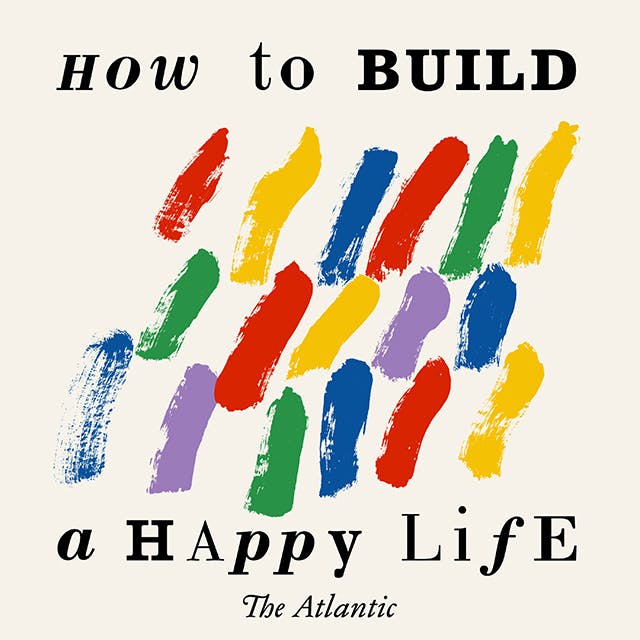
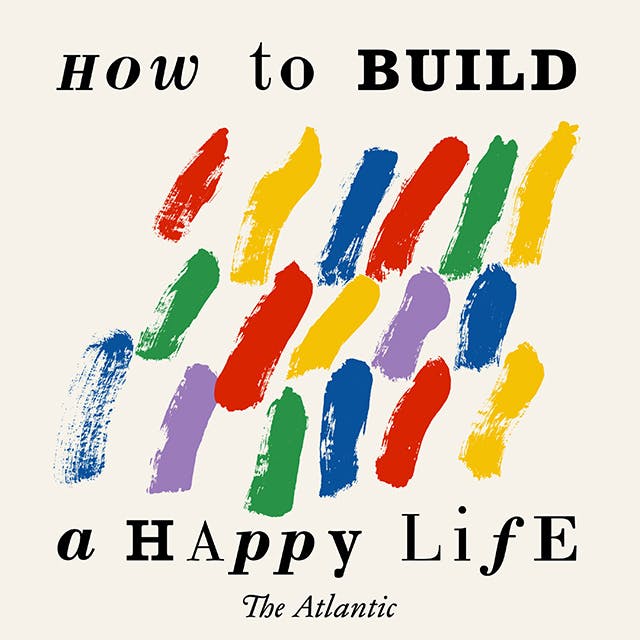
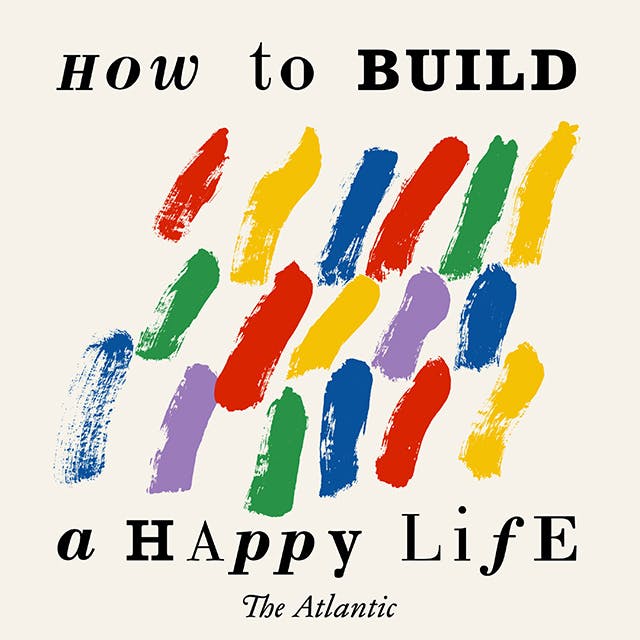
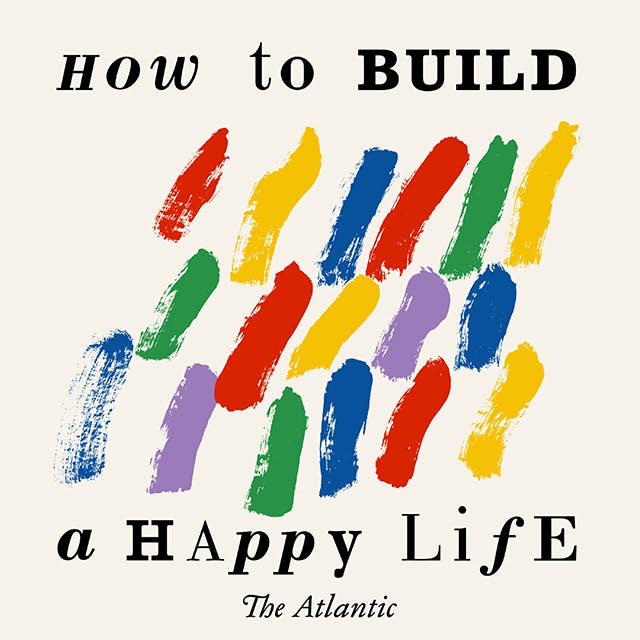
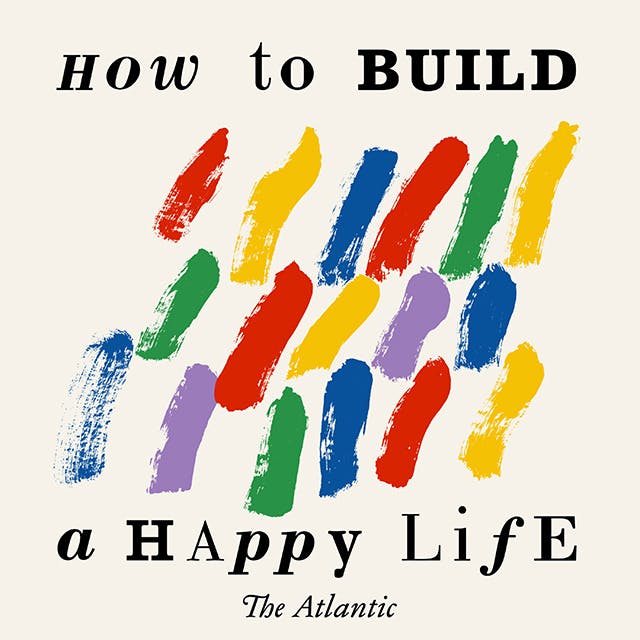



♥️✨️
💚WATCH>>ᗪOᗯᑎᒪOᗩᗪ>>LINK>👉https://co.fastmovies.org
WorldBox Mod APK is a cool game where you get to create your digital world. You can make oceans, islands, deserts, forests, and lots of other beautiful places right in the app. It's like having your little world to play with and design Get it Now : https://modsafari.com/worldbox-mod-apk-premium-unlocked/
Geometry Dash, in its original form, is a well-known platformer game available on various platforms, where players navigate through challenging levels, avoiding obstacles and spikes. Geometry Dash Mod is a customized or modified version of the original game, created by third-party developers or fans. https://www.thegeometrydashapk.com/
Whatsapp Apps is more than just an Apks platform; it's a hub for enthusiasts who seek reliable and innovative technological solutions. Our commitment to providing exceptional Apks reflects our passion for delivering content that not only meets but exceeds your expectations. As we strive to make Whatsapp Apps a flourishing online destination, your satisfaction and enjoyment with our curated Apks remain our top priorities. Join us on this exciting journey where technology meets dependability, and together, let's explore the endless possibilities that our platform has to offer. We appreciate your support and look forward to continuously enhancing your digital experience with our carefully selected Apks. https://allwhapks.com/whatsapp-gold-apk/
💚WATCH>>ᗪOᗯᑎᒪOᗩᗪ>>LINK>👉https://co.fastmovies.org
Wow it's amazing. You can aslo try this https://mlinjectors.com/worst-injector/
✅ CLICK HERE Full HD 1080p 4K👉👉https://co.fastmovies.org
▶ Really Amazing ️You Can Try This➤➤👉https://co.fastmovies.org
What is a Stumble Guys Mod APK? A mod APK is a modified version of the original Stumble Guys app. These mods alter the game's code to add features or functionalities not available in the official version. This can include: Unlocked skins and emotes: Flaunt your individuality with exclusive costumes and taunts not obtainable through regular gameplay. Unlimited gems: Shower yourself in the game's premium currency, allowing you to purchase anything your heart desires without grinding. Cheat functions: Gain an unfair advantage with features like infinite speed, wall hacks, or auto-grab, guaranteeing you the crown every round. For more info visit, https://thestumbleguys.com/stumble-guys-mod-apk-6/
I thoroughly enjoyed listening to the "How to Talk to People" podcast. The hosts did an excellent job of breaking down the art of effective communication into practical and actionable steps. It was insightful to learn about various communication techniques and strategies that can help improve our interactions with others. The real-life examples and guest interviews added depth and relatability to the content, making it a valuable resource for anyone looking to enhance their conversational skills. "https://www.cylex.us.com/company/nyc-packaging-solution-37042595.html" I appreciated how the podcast delved into the psychology behind communication and how to handle difficult conversations. The emphasis on active listening and empathy was particularly enlightening. Overall, a fantastic resource for personal and professional growth.
excuse me not text
where is the text of this file?
This episode seemed like a bunch of people just agreeing with each other. Also, just because people's experiences coincide with their childhood or having children, that coincidence doesn't disprove the idea that people are getting unfriendlier! Overall, this episode seemed a little shortsighted.
The ephemeral nature of live streaming creates a sense of urgency. Viewers often tune in to not miss out on real-time events, announcements, or interactions with their favorite creators. https://thoptv-hd.com/
Such a great podcast 👏 🙌 👌
Castbox.fm
WorldBox Mod Apk is an awesome simulation sandbox game. This app provides a platform to design for the digital world. Users are allowed to make oceans, islands, deserts, forests, and many different beautiful places available in the app. WorldBox Mod Apk has built-in animals, birds, plants, fruit bushes, and humans the same as in the real world. This game permits its players to simulate human life and life forms by recognizing the rules and regulations, users can make natural catastrophes, build new land and habitats for living organisms and make their favourite character a hero. https://apkscart.com/worldbox-mod-apk/
These podcast are so good I suggest it.
This episode hit home. I’m queen of awkwardness & always have anxiety with small talk. Covid definitely made me worse!!